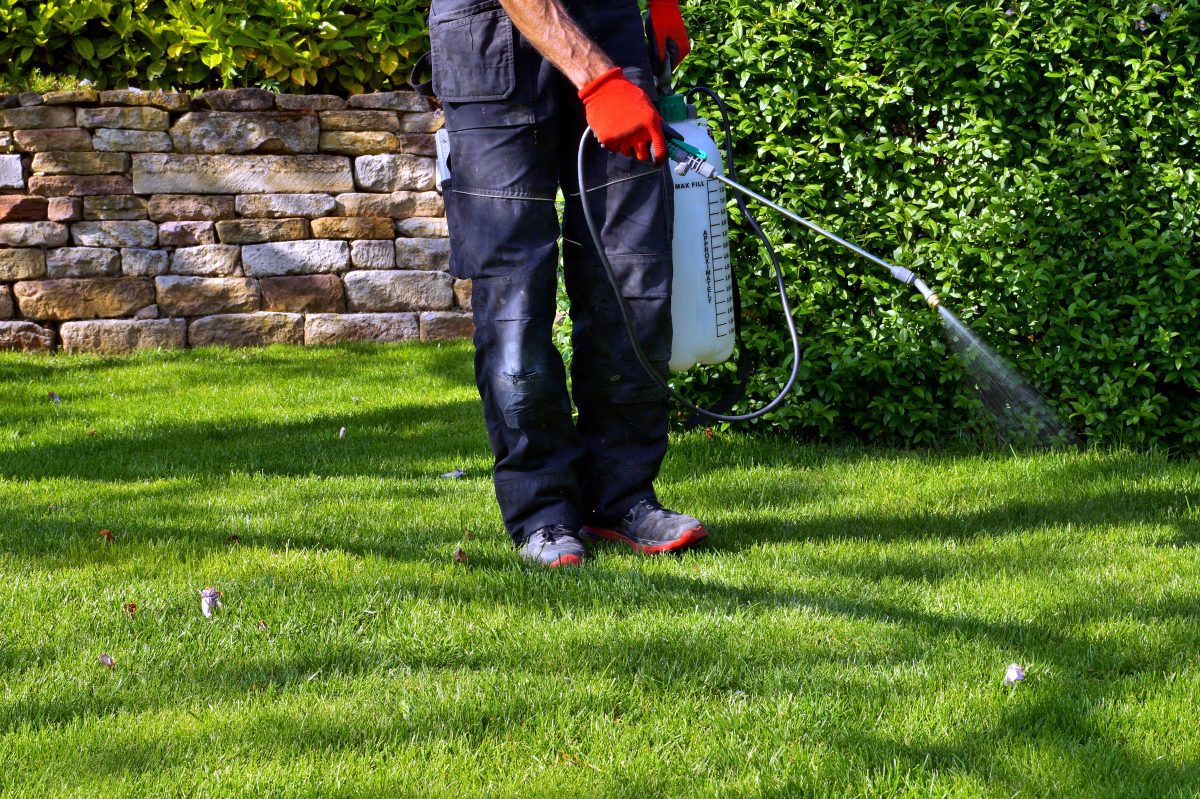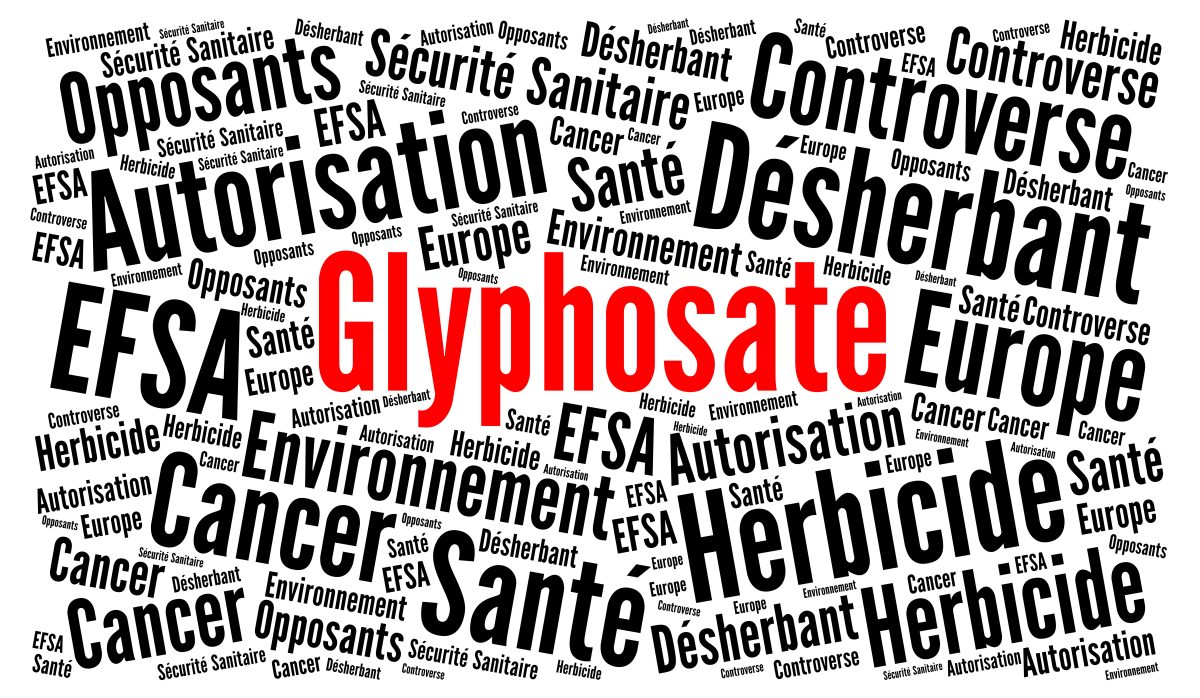Weeds may be challenging to remove, particularly if you don’t want them to return. As a result, when you see dandelion sprouts amid your perfectly trimmed lawn, you may grab for the weed killer. This is because traditional weed removal techniques can be too time-consuming and labor-intensive in some instances; therefore, a better solution may be required.
To prevent weeds from germinating and growing, herbicides or weed killers may be used as pre-emergent treatments. One of the well-known herbicides is glyphosate.
What Is Glyphosate?
Glyphosate is a very effective herbicide. In the United States, as well as, presumably, elsewhere, glyphosate is the most frequently used herbicide. Soybeans, cotton, and corn are among the crops for which it’s used liberally. It’s possible you may have already used it on your garden or lawn.
However, it’s been prohibited or restricted in more than two dozen nations. Particularly, glyphosate usage has been suspended on county land in Los Angeles until further research into the herbicide’s health impacts.
A glyphosate-based herbicide, Roundup, is now the subject of numerous multibillion-dollar lawsuits filed by individuals alleging that it caused their cancer. You can discover this info here.
Here are the updates on the possibility of developing cancer due to weed killer exposure, as well as some preventive measures you can practice to avoid ots health threats:
- Debate On The Safety Of Weed Killer
Glyphosate’s cancer-causing potential is a hotly debated scientific topic. The weed killer tale shows intriguing disconnects between science, popular opinion, and judicial judgments. However, the European Food Safety Authority maintains a similar position, stating in a 2017 draft risk assessment that the pesticide Roundup ‘isn’t expected to be carcinogenic to people.’ After Bayer purchased a certain weed killer, they claimed that glyphosate is a ‘safe and effective weed control product.’
Nevertheless, the World Health Organization’s International Agency for Cancer Research (IARC) categorized glyphosate as ‘possibly harmful to humans.’ People with non-lymphoma Hodgkin’s have sued, claiming that exposure to the pesticide was the caused for their illness. According to CNN, over 800 individuals sued a certain weed killer in 2017, and hundreds sued by 2018.

It’s not feasible to evaluate the direct effects of glyphosate on people due to ethical concerns. Animal research may not always correspond with human consequences. Population studies of individuals exposed to high levels of glyphosate may reveal a link between glyphosate and health problems. However, this doesn’t necessarily imply that glyphosate is to blame since many other variables may be involved.
- Researches About Glyphosate Linked To Non-Hodgkin Lymphoma
According to a recent study, glyphosate, the world’s most widely used weed killer, increases cancer risk in humans by 41%. Researchers at the University of Washington examined the chemical present in weed killers, who discovered that it substantially raises the risk of non-Hodgkin lymphoma (NHL), an immune system disease.
Non-Hodgkin lymphoma develops due to the body’s overproduction of aberrant lymphocytes, a kind of white blood cell. Lymph nodes enlarge when malignant lymphocytes congregate in the confined space. Non-Hodgkin lymphoma has many known risk factors, including infections, germs, medicines, and becoming older.
One further worry for physicians worldwide is exposure to glyphosate, a chemical often found in weed herbicides, as a possible cause. Regional Cancer Care Associates raises awareness about the connection between these products and cancer diagnoses in Connecticut, Maryland, and New Jersey.
- Latest Research On Dicamba Pesticides
The National Institutes of Health issued a press statement on dicamba usage last May 4, 2020, saying it may raise the risk of various malignancies. These include liver and intrahepatic bile duct tumors, mantle cell lymphoma, as well as acute and chronic lymphocytic leukemia. It’s unclear how many individuals have been harmed by dicamba usage or exposure at this point.
As a result of the Environmental Protection Agency’s approval of dicamba on genetically modified soybeans and cotton, the usage of the drift-prone pesticide has surged over millions of acres in the Midwest and South in the last three years.
Peer-reviewed International Journal of Epidemiology released the research, the most extensive epidemiological investigation into the link between dicamba and cancer. Pesticide applicators in Iowa and North Carolina were tracked for more than two decades. The study found a link between pesticide usage and an increased risk of cancer.
- Recommended Remedies
Chemical insecticides, in general, are very harmful to humans. Although some gardeners have tried vinegar and home treatments, the results have been mixed. Other natural alternatives can be the following:
- Corn gluten
- Herbicidal soaps
- Salt-based Herbicides
- Phytotoxic oils (essential oils, such as peppermint, citronella, clove, or pine)
- Iron-based herbicides
To maximize the benefits of a weed killer alternative, combine it with other beneficial measures, such as working to enhance soil health, plant nutrition, and watering. However, if you can’t avoid using glyphosate-based products, follow these preventive measures:
- Read all directions and cautions on the label.
- Don’t allow the chemical to come into contact with your skin, clothes, or eyes.
- It would help if you used gloves to protect yourself.
- To keep the chemical from floating, don’t use it while it’s raining or windy.
- Keep it out of drains and rivers.
- People and pets should avoid treated areas until they’re completely dry.
Note that weed killer usage requires technical expertise in herbicide selection, safe dosage, application timing, and administration for the specific crop as it has the potential to damage nearby crops. For example, 24-D in ester form may damage nearby crops. Because of its long-lasting residual effects, unavoidable weed killers restrict growers’ ability to choose the following crop in the cycle.
Nevertheless, pulling weeds by hand every two weeks is safer than applying herbicides, even if it’s time-consuming and costly. Before their roots being established, weeds should be pulled out.
A friendly reminder is to consult a medical expert if you have health concerns after exposure to glyphosate for early detection and diagnosis. You need to inform your doctor about the amount, kind, and duration of glyphosate exposure. This may assist a physician in determining your risk factors.
Conclusion
Many research and legal challenges have focused on glyphosate because weed killers, especially those that target non-Hodgkin lymphoma, may cause cancer. There’s conflicting research data about the cancer risks associated with herbicides containing glyphosate. If you want to avoid harming your health or the environment, the best thing you can do is take precautionary steps and use weed killer alternatives that are safe.


